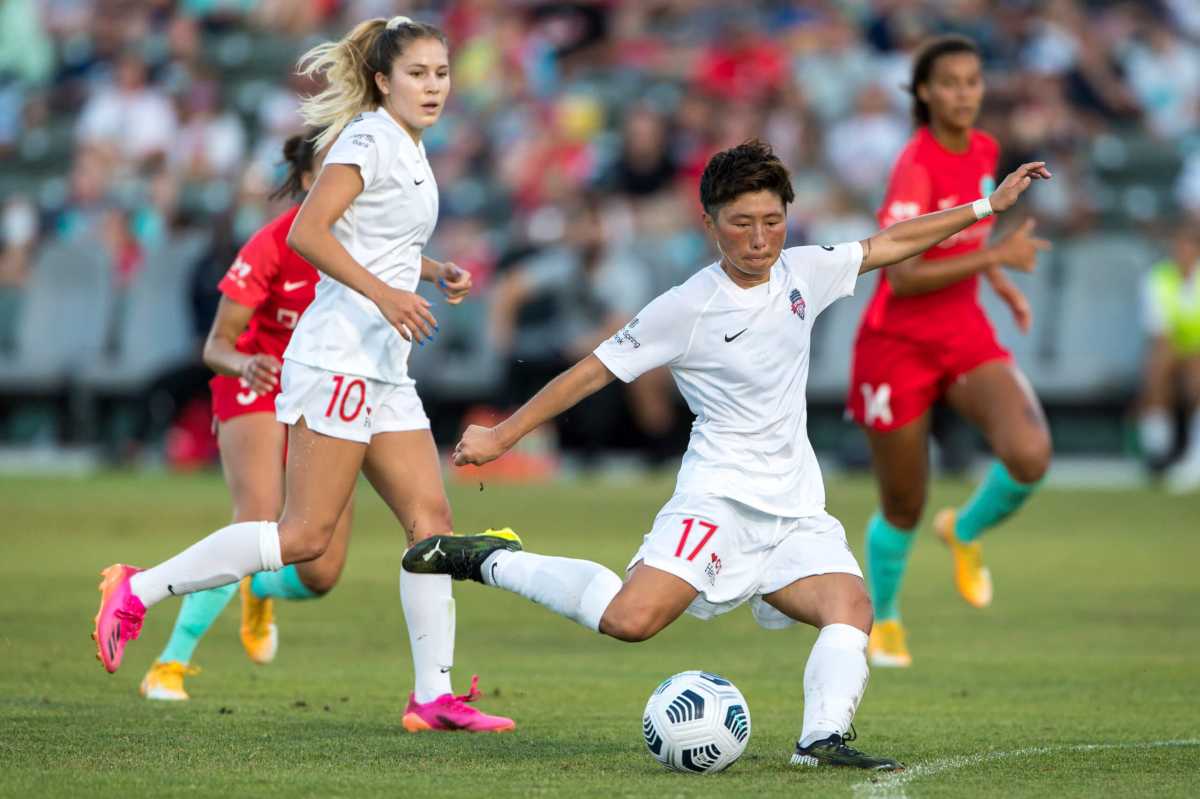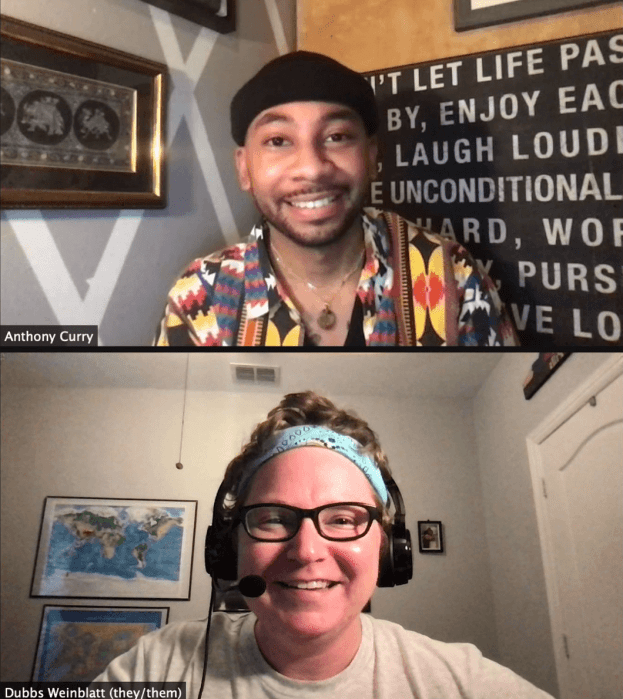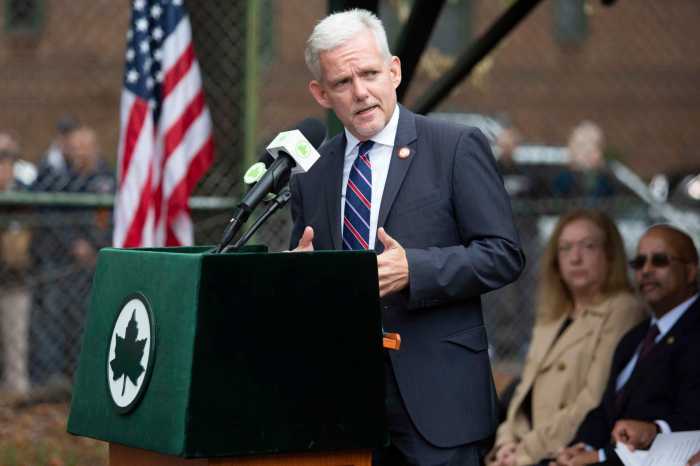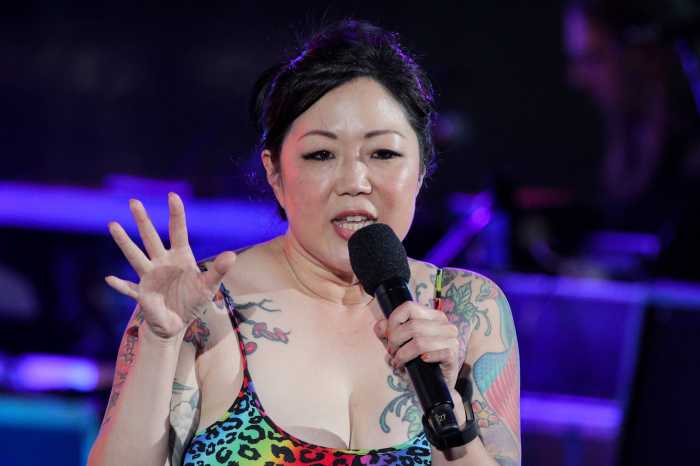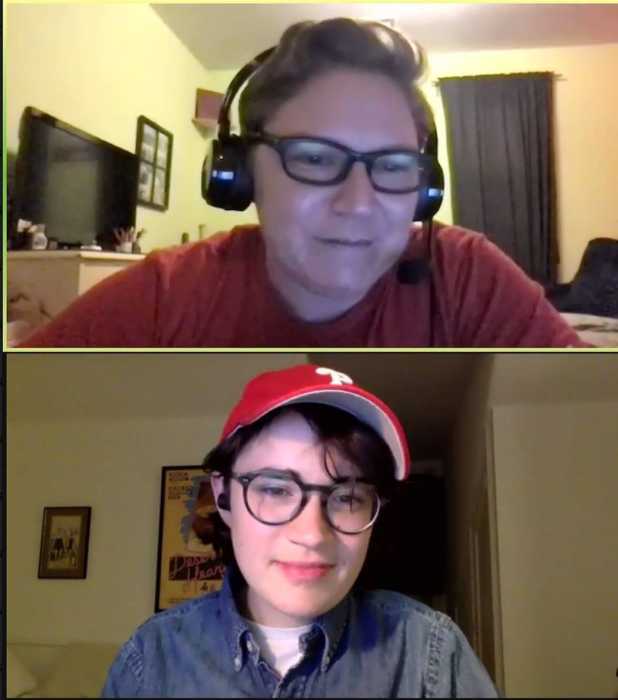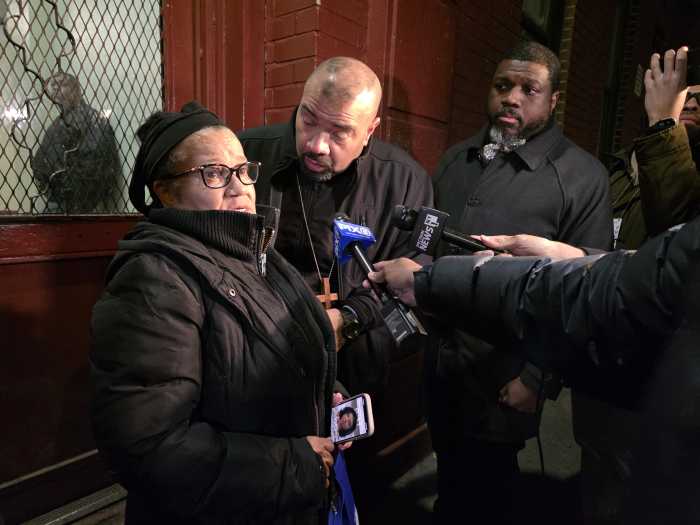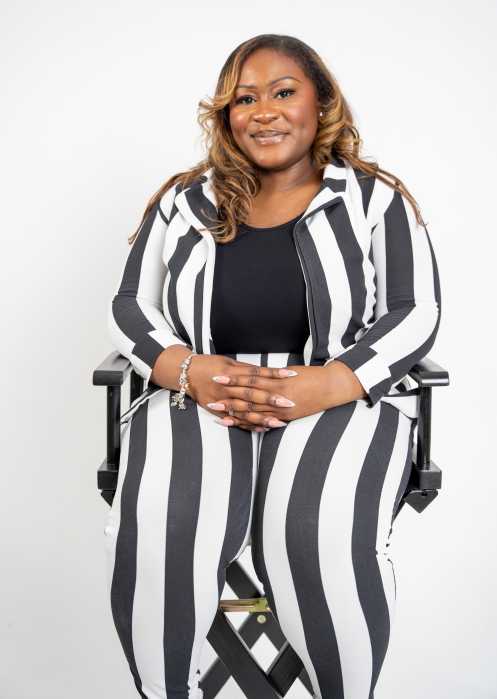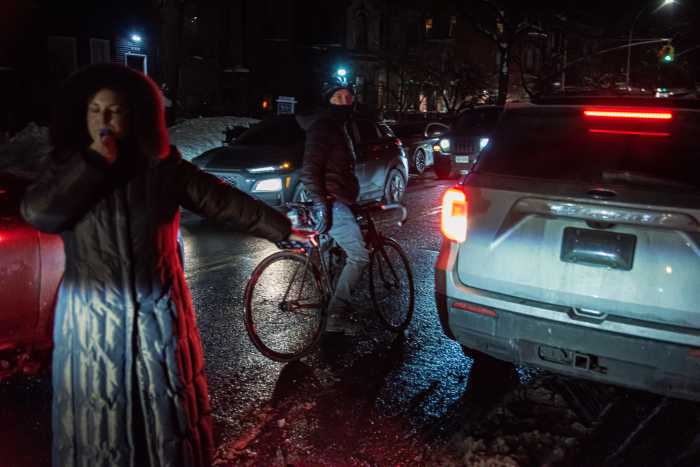The wide-scale attacks on trans girls and women on playing fields across the country made this year’s Pride Month a crucial one for the sports world — and a diverse slate of queer athletes made the most of it with a series of unexpected gains that shattered historic barriers.
Entering the month, queer athletes were contending with more adversity than ever in an already-hostile atmosphere that has kept many professional athletes in the closet, targeted Black athletes with racism and sexism, and dehumanized trans girls, women, and some non-binary athletes. It is difficult to convey the scope of the damage inflicted during the state-by-state effort to ban trans athletes from sports, but there is no doubt that the transphobic talking points have infiltrated the mainstream sports landscape: Just in recent days, retired NFL legend Brett Favre said it is “not fair” for trans women to compete in the Olympics — and he still has an audience ready and willing to cling to his words.
Trans athletes are looking to prove him wrong. In one of many victories for the community during Pride Month, New Zealand weightlifter Laurel Hubbard etched her place in history when she was named to the nation’s roster for the Tokyo Olympics. And in case Favre is wondering — she’s playing by the rules.
Another athlete heading to Tokyo is out queer sprinter Sha’Carri Richardson, who breezed past the competition in the women’s 100m Olympic trials in Oregon on June 19. LGBTQ representation — especially for Black women — is important in a track and field environment where out lesbian South African Olympic gold medalist Caster Semenya has faced years of racism and invasive sex testing. One of the most refreshing moments of Richardson’s victory was when she said her girlfriend inspired her to dye her hair orange.
The gains during Pride Month also included some of the more attention-grabbing highlights, such as the coming out of Raiders defensive end Carl Nassib — who became the NFL’s first out active player on June 21. The impact of Nassib’s announcement was felt immediately when the NFL launched a new video campaign voicing explicit support of the LGBTQ community.
The news about Nassib sparked public discussions among former players such as hall of famer Bruce Smith, who said he played with as many as two gay teammates during his time with the Buffalo Bills. Another hall of famer, Warren Moon, said “several” teammates from his days with the Houston Oilers never were comfortable enough to go public.”
Nassib also demonstrated the importance of acceptance when he shared that he was only able to come out with the support of his teammates, family, and friends. His coming out marked a major step forward for a hyper-masculine sports league that has seen two other out players in the last seven years — Michael Sam and RK Russell — but neither played a snap in a regular season game after coming out. Nassib will look to cross that hurdle in September.
Another highlight of the month came with the release of a documentary, “Against the Current,” chronicling the remarkable journey of transgender Icelandic kayaker Veiga Grétarsdóttir. Grétarsdóttir successfully completed a 2,000-kilometer adventure in a kayak by downing a whopping 7,000 calories per day so she could row for eight hours per day.
Coming out stories also spread to the soccer universe. Kumi Yokoyama, a trans man who plays for the Washington Spirit and serves on Japan’s national team, came out in June after stating that the accepting environments surrounding them helped make it easier to come out. Like Nassib, Yokoyama further proved how much acceptance can make a difference.
Individual athletes paved the way during Pride Month, but professional sports also collectively joined in with Pride Night events across the country. Most MLB teams scheduled Pride nights — and despite some flaws, every year seems to bring improvements from previous years.
In Queens, the Mets hosted a Pride Night doubleheader that was far too submerged in corporate rainbows and slogans, but it was indeed a step up from previous years. For the first time, the Mets offered the first 12,000 fans a free Pride T-shirt featuring a Mets logo in rainbow colors — and the Mets have, by far, the most pro-LGBTQ roster in history. Pitchers Marcus Stroman, Taijuan Walker, and Trevor May posted on social media to show their support for the LGBTQ community. Their bold stands shouldn’t be a big deal, but they are — and those players deserve praise.
Across town, the Yankees continued a positive Stonewall Scholars program in which they distribute five $10,000 scholarships to one LGBTQ student in every borough. The Yankees have rightfully taken criticism for failing to host an actual Pride game, but they bring the scholars to Yankee Stadium for a pre-game ceremony.
The encouraging developments during Pride Month — combined with the Biden administration’s steps to stand up for trans student-athletes — could not have come at a better time for the queer sports world. There is a long road ahead, but the steps forward should be celebrated during an era when the community has been bombarded with bad news.

